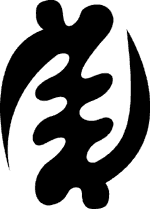wayne hansen wrote:Visuliasion is a basic level of tai chi in both pushing and combat
The real ability comes from feeling not thinking
Agreed to 100%.
Not even many people who understand say how it is. People don't like to listen to words that are easy to understand as "feel" or "awareness". They like popular and fussy terms as "Mind" and "Visualisation", which is in fact mostly misunderstood.
Or maybe we should say that visualisation is mostly misunderstood and overemphasized here in the West. Much has to with a misunderstanding of the Chinese character "xin", 心, that is usually translated into "mind". The character "心" though literary means "heart". What is usually meant in Chinese thought is your emotional judgement, which is also responsible for your moral and ethical development and growth.
What is actually meant by "to use xin" in Tai Chi, or that you must "use the mind" while practicing is not about visualisation as most people believe. But in fact, it means that you need to study your art committed, through an emotional commitment (as doing something deeply focused and with great passion), and with a long term goal in mind.



 Yep, imo, there are several minds, but only one "thinks." I can think of one that definitely has a mind of its own that has to be ... controlled.
Yep, imo, there are several minds, but only one "thinks." I can think of one that definitely has a mind of its own that has to be ... controlled.